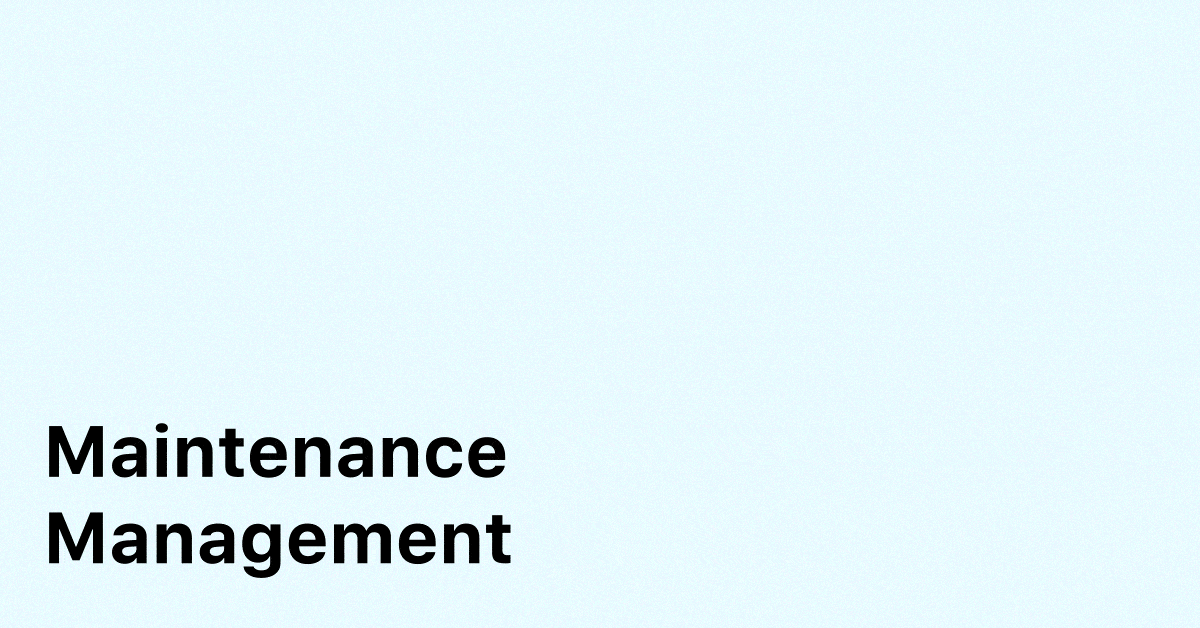As a strata manager, you know that keeping a property in top shape takes regular care and attention. A well-maintained property isn’t just about how it looks, it ensures that residents are happy, and repairs are done on time to protect property value.
In this article, we will go through a checklist that covers everything you need to stay on top of, from inspections and landscaping to plumbing and fire safety. But first let’s understand how Strata Property Management works, and why regular maintenance matters.
What is Strata Property Management?
Strata property management is the process of looking after properties where ownership is shared, like apartment buildings or complexes with multiple units. In these setups, each owner has a private unit but shares responsibility for the common areas, such as gardens, hallways, and parking lots. Strata management ensures that these shared spaces are maintained, safe, and enjoyable for everyone. Usually, this is handled by a strata manager or a committee, helping keep things organized and running smoothly.
Why Regular Maintenance Matters
Regular maintenance is essential to keep a property in great shape, and it benefits everyone from the owners to the tenants, and the overall community. By staying on top of repairs and upkeep, small issues can be caught early before they turn into bigger, more expensive problems.
Routine Inspections
By scheduling routine inspections monthly or quarterly, property managers and owners can catch potential issues early, saving time, money, and hassle in the long run.
What to Check During Inspections
During these routine inspections, it’s important to look at specific areas that play a big role in the property’s overall function and safety:
- Common Areas: Hallways, lobbies, stairwells, and any shared spaces need to be checked for cleanliness, safety, and general upkeep. Inspect for any wear and tear, trip hazards, or items that need cleaning or repair.
- Plumbing Systems: Check for signs of leaks, water pressure issues, or blockages in shared pipes. Early detection of plumbing problems can prevent water damage and costly repairs down the line.
- Electrical Systems: Test lights, outlets, and wiring in shared areas to ensure everything is functioning correctly. Faulty wiring or broken lights can pose safety hazards, so addressing these issues promptly is essential.
- Roofs: Inspect the roof for any visible damage, such as loose tiles or signs of leaks. Roof problems can easily lead to water damage in the building, so keeping an eye on this area helps prevent future complications.
- Exteriors: Check the building’s exterior for cracks, signs of weather damage, or structural wear. A well-maintained exterior not only looks better but also protects the building from long-term damage caused by weather and natural elements.
Landscaping and Outdoor Areas
The outdoor areas of a strata property, such as lawns, gardens, and walkways, are the first things people see, and they make a big impression. Well-maintained landscaping not only enhances curb appeal but also adds to the overall enjoyment of the property for residents and visitors. Here’s what to focus on:
- Lawn Care: Regular mowing, watering, and fertilizing help keep lawns lush and green. It’s also important to control weeds and pests that could harm the grass and make the area look neglected.
- Garden Maintenance: Pruning shrubs, trimming trees, and planting seasonal flowers or plants help keep the gardens looking fresh and vibrant. Removing any dead plants and replanting as needed keeps the garden lively and attractive throughout the year.
- Walkways: Check walkways for any cracks, uneven sections, or loose stones, as these can pose safety risks. Keeping walkways clear of debris, overgrown plants, and leaves helps make them safe and visually appealing.
Seasonal Considerations for Weather Impacts

Different seasons bring unique challenges, so adapting landscaping efforts to the time of year can help keep outdoor areas in great shape:
- Spring: This is the time to refresh the lawn and gardens after winter. Plant new flowers, prune any frost-damaged plants, and start regular mowing and watering schedules. It’s also a good time to repair any winter damage to walkways or outdoor structures.
- Summer: With more sun and higher temperatures, lawns and plants may need extra watering. Keep an eye on lawns for dry patches and water them as needed. Also, summer is a good time to trim trees and shrubs to keep them from blocking pathways or growing too close to the building.
- Fall: Clear away leaves from walkways, lawns, and gardens to prevent buildup, which can be slippery and unsightly. Fall is also an ideal time to prepare plants for winter by mulching and removing any dead or weakened branches.
- Winter: In colder climates, snow and ice removal are essential for keeping walkways safe. Protect delicate plants from frost with covers or mulching, and be mindful of salt or chemicals used on walkways to avoid damaging nearby lawns and gardens.
By keeping up with regular landscaping and adjusting for seasonal needs, strata properties can maintain safe, beautiful outdoor spaces all year round, boosting the appeal and comfort of the property.
Building Maintenance
Keeping both the inside and outside of the building clean is essential for creating a welcoming environment and ensuring the property stays in good condition.
Interior and Exterior Cleaning
Regular cleaning not only helps maintain the building’s appearance but also prevents issues that can arise from dirt buildup, such as mold, odors, or damage to surfaces. Key cleaning tasks include:
- Interior Cleaning: Common areas like lobbies, hallways, staircases, and elevators should be cleaned regularly to keep them fresh and presentable. This includes dusting, vacuuming, mopping floors, and wiping down surfaces. Bathrooms and any other shared facilities should receive frequent attention to ensure cleanliness and hygiene. Proper interior maintenance also extends to keeping windows and light fixtures clean, which can make spaces feel brighter and more inviting.
- Exterior Cleaning: The exterior of the building is the first thing people see, so it’s important to keep it looking its best. Regular pressure washing can help remove dirt, grime, and any mold or algae buildup from walls and walkways. Cleaning windows and keeping entrance areas free of litter and debris enhances curb appeal and helps maintain a polished look.
Paint and Façade Upkeep
Paint and façade maintenance is not only about appearances but also about protecting the building’s structure from wear and tear over time.
- Paint Maintenance: Regularly check painted surfaces for signs of peeling, cracking, or fading. In high-traffic areas, touch-ups may be needed more frequently to maintain a fresh look. Periodic repainting of common areas, such as hallways and lobbies, helps keep them looking clean and updated. Exterior paint, on the other hand, may need refreshing every few years, depending on exposure to the elements. Quality paint not only enhances the building’s appearance but also provides a protective layer against moisture and UV damage.
- Façade Upkeep: The building’s façade often faces harsh weather conditions, so routine inspections are necessary to catch any damage or deterioration early. Cracks, loose bricks or tiles, and worn-out siding are all things to look out for. Addressing these issues promptly prevents more significant structural problems and helps maintain the property’s value. Keeping the façade in good condition also contributes to energy efficiency, as it helps prevent drafts and insulation issues.
Regular cleaning and upkeep of paint and façades keep the building looking well-cared-for and add to the comfort, safety, and value of the property.
HVAC and Electrical Systems
Regular Service and Inspections of Heating/Cooling Systems
Keeping the heating and cooling (HVAC) systems in good shape is important for everyone’s comfort and health. Regular maintenance, like twice-a-year checkups, can keep these systems running smoothly and help avoid costly breakdowns. Here’s what regular service involves:
- Changing Filters: Filters should be replaced every few months to keep the air clean and to prevent the system from working too hard. Clean filters mean better air quality and lower energy bills.
- System Cleaning: Dust and dirt can build up in vents and ducts, making it harder for the HVAC to work properly. Professional cleaning keeps the air fresh and helps the system run efficiently.
- Checking Key Parts: An HVAC technician will inspect important parts like the thermostat, coils, and condenser. This helps catch any minor issues before they turn into big, expensive problems, making sure your system is ready for hot summers and cold winters.
Checking Electrical Outlets, Lights, and Systems for Safety
Keeping electrical systems safe is essential for any property. Regular inspections help prevent electrical issues, ensure lights stay on, and keep everyone safe. Here’s what to check:
- Outlets and Wiring: Outlets and wiring can wear out over time. Checking for any signs of wear, like overheating, discoloration, or loose connections, can prevent safety issues. Damaged outlets should be replaced right away to reduce fire risks.
- Lighting Fixtures: All common area lights, both indoors and outdoors, should be checked to ensure they’re working. This includes hallway and outdoor lights, as well as emergency lights. Replacing burnt-out bulbs promptly keeps spaces well-lit and safe.
- Electrical Panels and Safety Devices: Electrical panels and circuit breakers should be inspected regularly by a professional to make sure they’re working as they should. Other safety devices, like smoke detectors, GFCIs (ground fault circuit interrupters), and surge protectors, should also be checked to ensure they’re functioning correctly.
Small, regular checks in strata buildings help prevent bigger issues, keep bills lower, and make sure everyone feels safe and comfortable in their shared spaces.
Fire Safety and Security
Ensuring Fire Alarms, Extinguishers, and Exits are Up to Code
Fire safety is incredibly important for everyone’s well-being. Regular checks on alarms, extinguishers, and exits make sure everything is in place if there’s ever an emergency. Here’s how to stay prepared:
- Fire Alarms: Test alarms regularly to be sure they’re loud, clear, and working. Alarms should be easy to hear in all areas, and they need to stay free of dust or blockages. Regular testing ensures they’ll alert people if there’s a fire.
- Fire Extinguishers: Keep extinguishers in easy-to-access places and check them regularly. Make sure they’re fully charged and haven’t been moved or tampered with. It’s also a good idea to make sure everyone knows where they are and how to use them just in case.
- Emergency Exits and Escape Routes: Always keep exits and escape routes clear and easy to find. Exit signs should be bright and visible, and the doors should never be blocked. Clear pathways make it easy for everyone to get out quickly and safely.
Checking Security Systems and Lighting
Security is key to making everyone feel safe and secure on the property. Regularly checking security systems and lighting helps protect the property and the people on it. Here’s what to focus on:
- Security Systems: Test cameras, intercoms, and door access systems regularly to make sure they’re working as they should. Cameras should have a clear view, and access systems should allow easy communication with visitors or staff. These systems help keep everyone safe and make it easier to monitor the property.
- Outdoor and Emergency Lighting: Well-lit common areas, pathways, and parking lots are important for safety and security. Check that outdoor lights are working, and replace any burnt-out bulbs promptly. Emergency lights in hallways and stairwells are also important for guiding people to exits if there’s a power outage.
Plumbing and Drainage Systems
Routine Checks for Leaks and Blockages
Regularly checking for leaks and blockages in plumbing and drainage systems helps prevent water damage and costly repairs. Small issues, like a dripping tap or a slow drain, can quickly turn into bigger problems if left unchecked. Here’s what to keep an eye on:
- Leaks: Inspect pipes, taps, and shower heads for any signs of leaks, even small drips. A tiny leak can waste a lot of water over time and may lead to bigger plumbing issues or water damage if it isn’t fixed. Regular checks and quick repairs help keep everything running smoothly.
- Blockages: Clogged drains can be a major inconvenience and may cause water to back up. Regularly check drains in kitchens, bathrooms, and laundry areas to ensure water is flowing freely. Simple preventive steps, like using strainers in sinks and keeping drains clear of debris, can help avoid blockages and keep the system running efficiently.
Maintenance of Water Systems, Including Hot Water Units
Keeping the water system in good condition is essential for a comfortable, functional property. Hot water units, in particular, need regular maintenance to ensure they’re working efficiently and safely:
- Hot Water Units: Schedule regular inspections of hot water units to check for any leaks, rust, or unusual noises. If a hot water unit isn’t working properly, it can lead to inconsistent hot water, higher energy bills, or even breakdowns. Flushing the unit annually helps remove any sediment buildup, which improves efficiency and extends its lifespan.
- Pressure and Temperature Checks: Make sure the water pressure is consistent and within safe levels to avoid stress on pipes and fixtures. Also, check that hot water temperatures are safe and comfortable to prevent any risk of scalding
Waste Management
Setting Up an Easy Waste Removal Plan
Having a simple and effective waste removal plan helps keep the property clean, safe, and pleasant for everyone. Here’s how to make it work:
- Clear Waste Collection Areas: Set up well-marked bins or areas for regular trash, recycling, and any other waste, like compost. These spots should be easy for residents to find and convenient for the waste collection service.
- Regular Pickups: Schedule regular waste pickups to keep bins from overflowing. Consistent pickups help control odors and keep pests away. Sharing the schedule in common areas or sending reminders can also help residents know when to take out their trash.
- Easy-to-Read Signs: Place clear signs on or near each bin so everyone knows what goes where. This reduces mix-ups and helps keep recycling clean and organized.
Encouraging Recycling and Proper Disposal
Recycling is a simple way to keep the property eco-friendly and helps everyone do their part. Here’s how to make recycling easy:
- Separate Recycling Bins: Provide bins for different recyclable items like paper, plastic, glass, and cans. Clearly label each bin to help everyone know what to recycle. This keeps things organized and makes recycling easier for everyone.
- Share Recycling Tips: Let residents know what items can and can’t be recycled. Simple reminders near bins or an occasional notice can help everyone get it right.
- Special Disposal for Hazardous Items: Some things, like batteries, electronics, or paint, need special disposal. Share information on where to take these items or set up collection days for safe disposal. This keeps harmful materials out of regular trash and helps protect the environment.
With a friendly, easy-to-follow waste management plan, the property stays cleaner and greener, and it’s simpler for everyone to pitch in. A well-organized system makes waste disposal hassle-free for the whole community.
Pest Control
Regular Checks and Preventive Steps
Keeping pests away is all about staying ahead of the problem! With regular checks and some simple preventive steps, you can keep the property clean and pest-free. Here’s how:
- Regular Inspections: Check common areas, storage rooms, basements, and trash areas for any signs of pests, like droppings, nests, or chew marks. Catching these early makes it much easier to prevent a bigger problem.
- Preventive Treatments: Use safe, preventive treatments in areas where pests like to hide, like around kitchen areas, basements, and trash bins. Simple steps like sealing cracks, fixing leaks, and keeping food areas clean can help a lot. These barriers help keep ants, roaches, and other pests out.
Calling in Professional Pest Control When Needed
Sometimes, professional help is the best option to handle more serious pest issues or to keep up with regular treatments. Here’s when to consider bringing in the pros:
- When There’s a Bigger Problem: If there’s an infestation or a stubborn pest issue, professional pest control services have the right tools to get rid of pests safely and effectively. They can also target specific pests with the best methods.
- For Routine Maintenance: Even if there isn’t a noticeable problem, it’s a good idea to schedule a professional pest treatment once or twice a year. Professionals can apply treatments that last longer and offer tips to keep pests away.
With routine checks, a few preventive steps, and professional help when needed, pest control can be easy and effective.
Following local rules and regulations is important to keep the property safe and avoid any fines. Making sure the property is up to code helps protect everyone living there. Here’s what to keep in mind:
- Know the Rules: Different areas have different regulations, covering things like fire safety, waste disposal, building maintenance, and access. Understanding the rules that apply to your property helps keep everything in line with local laws.
- Schedule Regular Inspections: Many places require regular safety checks to make sure things like fire alarms and emergency exits are working properly. Scheduling these inspections and fixing anything that needs it keeps the property safe and compliant.
Keeping Safety Certificates, Permits, and Insurance Up-to-Date
Having the right documents in order is also important for safety and peace of mind. Here are a few key items to keep updated:
- Safety Certificates: Certificates for things like fire safety and electrical systems need to be renewed from time to time. Keeping these certificates up-to-date shows that the property meets current safety standards and is safe for everyone.
- Permits: If you’re planning any upgrades or changes to the property, make sure to check if you need a permit. This makes sure any work done is legal and meets safety standards.
- Insurance: Review property insurance each year to make sure it provides enough coverage. This includes liability insurance, which protects everyone if there’s an accident or damage. Keeping insurance updated helps cover the property properly.
By staying on top of local rules and keeping all documents current, you’re helping to make the property a safe, secure, and well-managed place for everyone.
Over to You
Keeping up with regular maintenance is key to making a strata property safe, comfortable, and valuable. By following a steady maintenance schedule, small issues get fixed before they become big problems, and the property stays in great shape for everyone.
From routine checks and landscaping to building repairs, fire safety, and pest control, a good plan covers it all.
One easy way to stay on top of maintenance tasks is by using a checklist, but there’s also a great tool that can make things even simpler. It is called i4T Maintenance.
This leading strata maintenance management software helps strata managers handle property upkeep all from one place. With i4T Maintenance, managers can easily manage work orders, get supplier quotes, ensure compliance, track progress, and keep tenants updated. It’s a practical, all-in-one solution for making maintenance more efficient.
By using a tool like i4T Maintenance and sticking to a regular checklist, strata managers can save time, reduce costs, and create a safe, pleasant property for everyone.
Regular care and attention go a long way in making the property a welcoming and well-managed place to live or work.
FAQs
Regular maintenance helps keep the property safe, clean, and valuable. It prevents small problems from turning into costly repairs and keeps tenants happy.
Inspections should be done monthly or quarterly to catch issues early and ensure everything is in good condition.
Common areas include HVAC and electrical systems, fire safety equipment, plumbing, landscaping, and building exteriors and interiors.
i4T Maintenance is a helpful software for managing maintenance tasks. It lets strata managers handle work orders, supplier quotes, compliance, progress tracking, and tenant communication from one place comprehensive training, analyse data for insights, gather customer feedback, and keep the software updated.
A checklist helps strata managers stay organized, remember key tasks, and keep maintenance consistent, which saves time, and money, and ensures a well-managed property.
Hot off the press!

Field Service Management sector operates, the i4T Global Team loves to share industry insights to help streamline your business processes and generate new leads. We are driven by innovation and are passionate about delivering solutions that are transparent, compliant, efficient and safe for all stakeholders and across all touch points.




